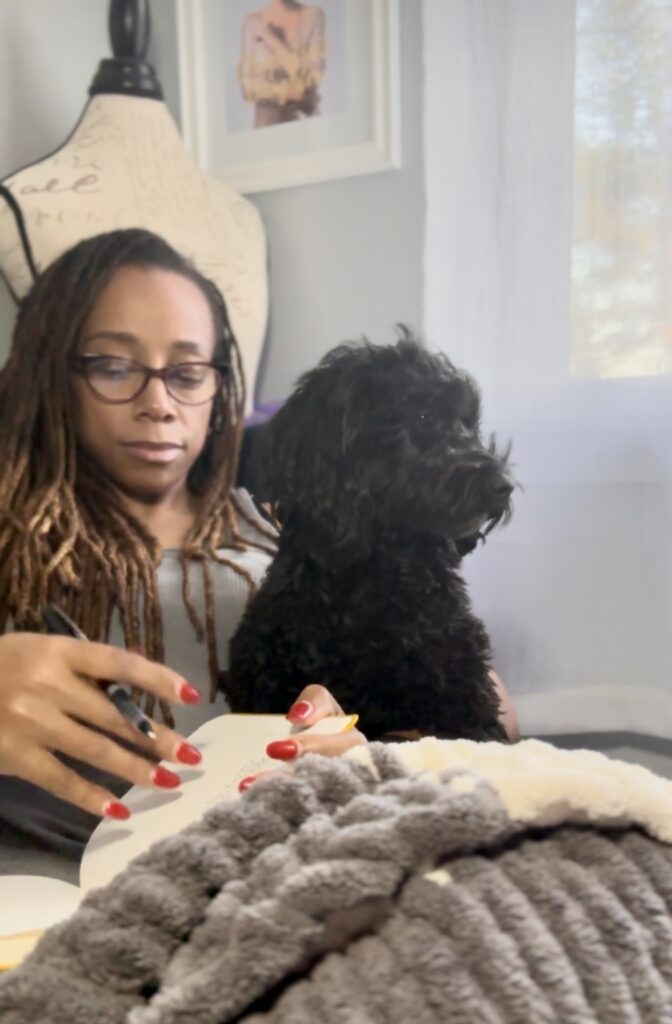Introduction
May is Mental Health Awareness Month, and Sick Cells wants to highlight the importance of mental health, as it deeply affects the Sickle Cell Disease (SCD) community. The pain and chronic symptoms of SCD can often be an emotional burden, but with the right tools, coping mechanisms, and support systems, you can manage your mental health to improve your quality of life.
Mental Health impacts almost every aspect of our lives, as it influences how we think and act. It also affects decision-making processes, how we address stressful situations and how we relate to others. This blog will share stories of warriors and their experience dealing with mental health challenges.
What is Mental Health, and Why Does it Matter?
There’s no doubt that you are already familiar with the term “mental health,” but what does this term actually mean? The World Health Organization (WHO) characterizes mental health as “a state of mental well-being that enables people to cope with the stresses of life, realize their abilities, learn well and work well, and contribute to their community.” Mental health and physical health are closely linked, and when sickle cell warriors and caregivers have to address physical challenges and complications on a daily basis, their mental state is affected as well. Warriors have to deal with pain, fatigue, and frequent hospital visits, which can lead to feelings of isolation from others. As a result of this isolation sometimes warriors can become depressed, anxious, and stressed. Understanding these feelings could help you better understand your state of mind and seek the help you need. Here are some other common terms used when discussing mental health and mental illness, as defined by WHO:
Stress is a state of worry or mental tension caused by a difficult situation. Everyone experiences stress to some degree since it is a natural human response that prompts us to address challenges and threats in our lives.
Anxiety is the feeling of excessive fear and worry that causes significant distress or impairment in functioning. There are different types of anxiety disorders, including generalized anxiety disorder, social anxiety disorder, and various phobia-related disorders.
Depression is a common mental disorder that is marked by persistent sadness and a lack of interest or pleasure in activities that were previously rewarding or enjoyable. Depression can also cause tiredness, poor concentration, and a disturbance of sleep and appetite. These symptoms can drastically affect a person’s ability to function, as they can be long-lasting and recurring.
About 1 in 3 people with SCD experience depression. It often goes undiagnosed and untreated because symptoms are similar to other SCD complications.
Boost Your Mental Health
Just like how everyone’s physical bodies look different, have different limitations, and react differently to external environments, peoples’ mental well-being is similarly varied. Everyone experiences and processes things in their own way, which adds complexity to the idea of “mental health.” Being mentally healthy is more than being free of depression, anxiety, and other mental disorders or psychological disabilities. A holistic view of mental health is one that takes into account all the factors that impact your ability to live fully, cope, and simply feel emotionally better each day. The Sick Cells Wellness Fundamental toolkit offers some guidelines on how warriors and other community members can take action to build “good mental health” by building resiliency, managing stress, staying active, having social connections, and finding meaning and purpose.

Stories from Warriors
Two SCD Warriors have shared their stories on how they manage their mental health. Below, Femi and Dima detail the tools they use to deal with the stress and anxiety that often comes with SCD.
Femi: “SCD has the ability to impact every area of life, including our mental health. I tend to be very active and SCD in many ways pushes me out of everything normal. In this intense time of hardship I take in that I am enough, stay in contact with my community, and yield to the need to slow down. The way I maintain mental health is by daily habits of meditation/prayer (taking in all that is lovely and how I want to live into the gift of today), close relationship with family and friends, appreciating the art of music (specifically worship), and the game of tennis/exercise. Playing tennis introduces me to an intergenerational and multi-cultural group of people. Mental health (good or bad) is contagious. We must learn to be healthy, and spread our health.”
Dima: “Sickle Cell Disease is a multifaceted disease. While SCD primarily affects physical health, it can also impact mental health in several ways. For me, there are three (3) triggers that can send my mental health spiraling over the edge.
- Pain – Dealing with daily chronic pain can be depressing and even causes anxiety. Moreover, when I experience a pain crisis, it interferes with my daily activities and social interactions, causing isolation and feelings of anger.
- Cognitive Impairment (AKA Brain Fog) – This is extremely frustrating. On many occasions, I have difficulties with memory, attention, and decision-making. These cognitive challenges have impacted my academic and occupational success and contributed to feelings of frustration and severely low self-esteem.
- Stigma – Constantly facing discrimination and prejudice is overwhelming and often leads to feelings of shame, embarrassment, and isolation. There have been times that I refused to seek medical attention.
I understand that living with Sickle Cell Disease significantly impacts my mental health. Therefore, I use tools to help me battle the warfare that happens in my mind and body.”
Set Boundaries
“First and foremost, I set appropriate boundaries for myself and others. I try my best to prioritize my own well-being by communicating my values, needs, and my limits. As warriors, we must understand that Sickle cell affects our mental health, but our mental health can also impact our Sickle Cell symptoms.”
Psychological support
“I am a huge fan of seeking mental health support. In fact, I see my therapist at least twice a month. When seeking therapy or other psychological support, ensure your provider is well-versed in pain and chronic illnesses. Therapy provides a safe and confidential space for warriors to work through emotions, thoughts, and behaviors with a trained professional. It can help individuals develop coping mechanisms, identify behavior patterns and work towards personal growth. I also encourage warriors to get an emotional support animal. For example, I have a dog named Cocoa. She provides emotional support when I’m not feeling my best and brings joy to our entire family.”
Faith
“Last but certainly not least, My faith in God gives me a sense of purpose, hope, and comfort. My favorite scripture is Jeremiah 29:11, which states, “For I know the plans I have for you,” declares the Lord, “plans to prosper you and not to harm you, plans to give you hope and a future.” I often reflect on this scripture and my relationship with my Heavenly Father on days when I feel hopeless and insignificant.”
Journaling
“Writing down my feelings before, during, and after a crisis helps me gain clarity and better understand who I am as an individual. Journaling also helps me track progress on goals that I set for myself.
Living with SCD can be restraining and even stifle your voice and dreams. However, I believe caring for your mental health can be a transformative journey that will liberate you to your authentic self.”

The Sickle Cell Health Coach
Founder of #ThroughThePain Inc.
@DimaHendricks
@scdhealthcoach
Available Resources
You don’t have to walk the mental health journey alone! There are many resources available to expand your support system. Below are a few to get you started:
- SCRED Collaboration with Better Help: In May the Sickle Cell Reproductive Health Education Directive will launch a partnership with Better Help. This partnership will provide SCD Warriors with access to a therapist for FREE. Look out for the announcement on their social media (@SCRED).
- Brotherhood of Warriors: This virtual support group of male warriors is committed to building a foundation of love and encouragement that promotes health. The monthly virtual meetings are hosted on Zoom through the Sickle Cell Medical Advocacy organization and organized by Femi Akinmoladun (ofakinmoladun@gmail.com) and Lathan Singleton.
- Sickle Cell Disease Association of Illinois (SCDAI): Each month SCDAI hosts a statewide monthly Support Group where the sickle cell community comes together to discuss different topics and do a variety of different activities.
- American Sickle Cell Anemia Association Support Group resources: You can find a support group in your city from this list provided by the ASCAA.
- Sickle Cell Foundation of Minnesota Support Groups: These support groups provide a “safe” space to discuss the challenges and the triumphs of living with sickle cell disease, and are critical to combating depression, anxiety, and isolation. This group is for ALL community members ages 16+ ONLY!
- Sickle Cell Disease Association of America: Every Monday SCDAA posts mindful session videos created by Dr. Marjorie Dejoie-Brewer. Follow their social media pages and take a mindful minute every Monday.
- Be The Match: Offers free counseling services for warriors.
- NAMI Compartiendo Esperanza: You can attend bilingual presentations for Latino communities designed to promote mental health awareness, explore signs and symptoms of mental health conditions and highlight how and where to find help.
- If you need IMMEDIATE HELP or are in a crisis: You can reach the Suicide & Crisis Lifeline by calling or texting 988 or using the chat box at 988lifeline.org/chat. You can also text “MHA” to 741-741 to reach the Crisis Text Line.
Your Mental Health Is Important!
Mental health is important for everyone, but especially members of the SCD community, who face increased challenges from social isolation, frequent hospitalizations and high costs of treatment, chronic pain, and other factors. It is easy for these concerns to pile up and cause feelings of stress and anxiety, but it is important to remember that there are also many ways to manage these negative feelings and take care of your mental health. Make sure that you are taking time for your own self-care This could mean relaxing by meditating and listening to music, or simply doing something that brings you joy. If you need additional support, find a therapist or licensed counselor or join a support group.
Published May 2023
